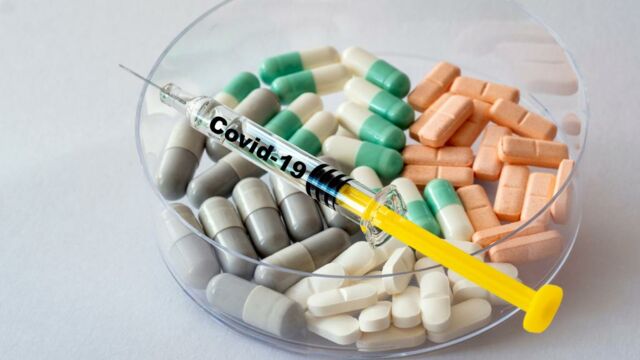A coronavirus vaccine in tablet form might enter the early stages of clinical trials this year. Oravax, the company that is working on this serum, announced in a press release that it hopes to begin the first phase of human clinical trials by June.
Discover our latest podcast
This step is likely just the very first phase in the development of a vaccine. There is no guarantee of success, and even if it does work, it could take a year or more before it is even approved for use (Moderna and Pfizer began their first human trials in March and May 2020 respectively). It can also be expected that industry giants may frown on and try to lobby against what they could be perceived as unwanted competition on their racket.
Considerable advantages
Oral vaccines are an option currently under evaluation for 'second generation' vaccines, which are designed to be more scalable, easier to take and simpler to distribute. Oravax is a joint venture of two companies: the Israeli-American company Oramed and the Indian company Premas Biotech. According to a press release on Friday, testing could begin as early as June.
An oral vaccine could 'potentially [allow] people to take the vaccine themselves at home,' Nadav Kidron, CEO of Oramed, said in the statement. The vaccine could be shipped in a normal refrigerator and stored at room temperature, Nadav Kidron added, 'which would make the logistics easier in order to get it anywhere in the world,' the Jerusalem Post reported.
In an email, Professor Paul Hunter, professor of medicine at the University of East Anglia, was cautious.
We would need well-led studies to prove the value [of oral vaccines]. But they could be useful for people with a severe phobia of needles, and their administration could be easier and faster.
Animal studies deemed 'encouraging'
Oral vaccines may also have other advantages over vaccines jabbed in the arm, Paul Hunter told Insider. 'The problem with systemic vaccines (arm shot) is that they're usually very good at preventing serious illness,' but they're often not that great at preventing infections. The theory goes that because the infection first occurs in the nose and throat, vaccines that focus on these areas help stop the infection before it progresses to something more serious. Data for the Oravax vaccine have not been published to date.
Results from animal studies are encouraging. But don't assume that results on animals always translate into results in humans. We need human studies to be sure.
Diversifying options for vaccines
Other types of second-generation vaccines are being explored, such as those given as nasal sprays. Scientists are also studying the possibility of administering vaccines through patches. Professor Sarah Gilbert, development scientist for the Oxford/AstraZeneca vaccine, said Oxford was weighing the possibility of developing orally administered nasal spray, and tablet vaccines, according to The Independent on February 25
Oxford University declined to answer questions about oral vaccines. Another company, ImmunityBio, is currently conducting Phase 1 clinical trials of an oral version of the vaccine. However, this version is to be be used more as a booster dose for the intramuscular vaccine, rather than as a full-fledged vaccine. The only trial for an oral COVID-19 vaccine in humans has so far not yielded conclusive results.
At the end of 2020, a company called Vaxart announced good results in animal trials, but the first human trials received disappointing responses.















